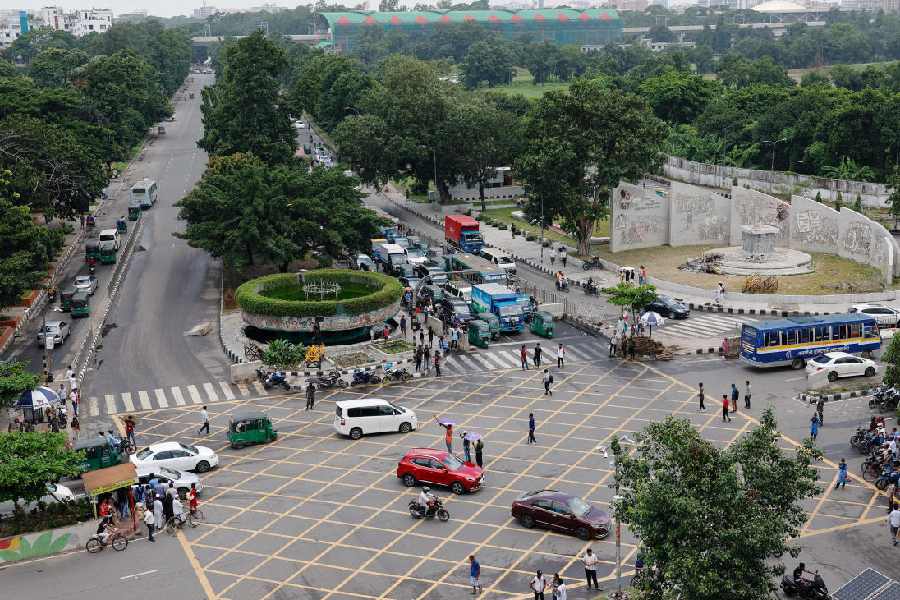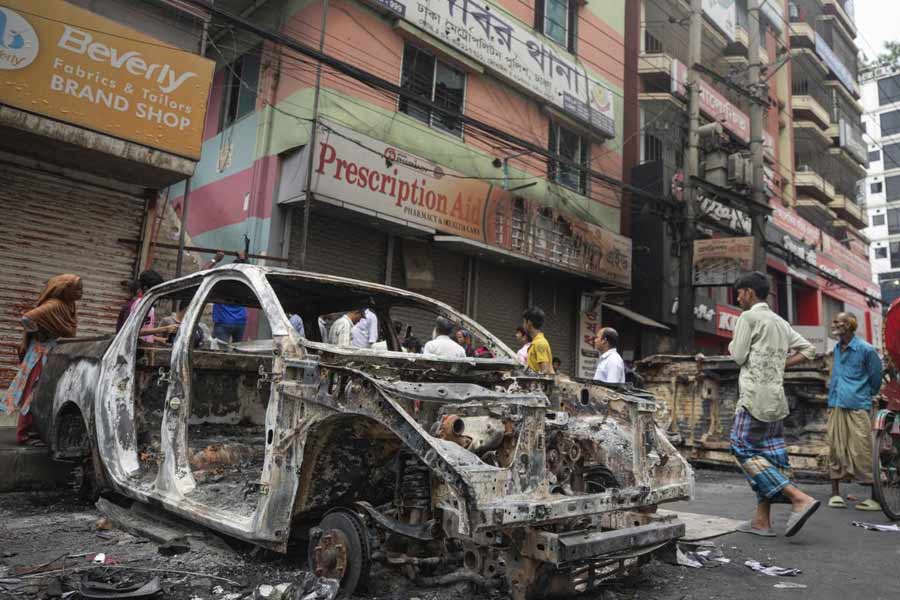Garment factories in Bangladesh, forecast to account for 90% of the country's exports, reopened on Wednesday hoping to swiftly resume full operations after production was disrupted by violent protests that ousted Prime Minister Sheikh Hasina this week.
Hasina resigned and fled the country on Monday after around 300 people were killed and thousands injured in a crackdown on student-led protests since July.
Garment and textile factories which supply major western brands such as H&M, Zara and Carrefour had been forced to shut under curfews imposed during the unrest.
"We lost a total of four days, it is too early to make an estimate of the loss. There was little physical damage to factories," Miran Ali, vice president of the Bangladesh Garment Manufacturers and Exporters Association (BGMEA), told Reuters.
"I am hopeful that in the next few days, we will see complete normalisation," he said. "I'm confident our buyers will stand by our side."
He added that H&M, which sources garments from about 1,000 factories in Bangladesh, had already said it would not seek discounts due to the delays. The world's second largest fashion retailer had said it was concerned about developments in Bangladesh.
At a factory belonging to apparel maker Urmi Garments in Dhaka, the mainly female employees were back operating sewing machines.
"We went out of work, sitting idle at home. We were scared. We are poor people depending on daily wages and overtime. If we sit back home, how can we run our families?" 38-year old Razia Begum, an employee at the factory, told Reuters.
Factory manager Emdadul Haq said the factory had lost 228,000 pieces of production worth $107,000. In all, Urmi, which counts H&M, Japan's Uniqlo and Britain's Marks and Spencer among its clients, had lost about $2.2 million across three units, he said.
The International Monetary Fund expects the ready-made garments industry will account for 90% of Bangladesh's $55 billion annual exports in the financial year 2024.
Bangladesh was the third-largest exporter of clothing in the world last year, after China and the European Union, according to the World Trade Organization. Nearly half of its exports in the July 2023-May 2024 period were to the EU, worth $21.65 billion.












